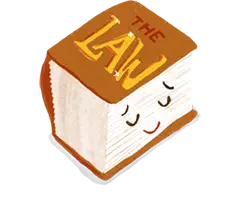Police and safety
This page contains different parts of laws about Police and safety, within the topic of Crime and justice.

Important laws about Police and safety
Court Martial Act 2007
Who can't be on a Court Martial panel
23: Disqualifications for membership
Court Martial Act 2007
Other country's officers can help in New Zealand military trials in certain situations.
25: Officers of other forces may be assigned as military members in certain circumstances
Court Martial Act 2007
Bail time while waiting for an appeal doesn't count as part of your sentence.
51: Time on bail pending appeal does not count as time served
Court Martial Act 2007
What happens if you break bail or run away from court
53: Issue of warrant to arrest person absconding or breaching bail condition
Court Martial Act 2007
What happens if you break bail or run away and get arrested
54: Person arrested under warrant for absconding or breaching bail condition must be brought before Judge
Court Martial Act 2007
Going back to court for not following the rules
63: Offender to come up for sentence
Court Martial Act 2007
The court can consider other crimes when deciding your punishment.
64: Other offences may be taken into account in passing sentence
Court Martial Act 2007
Using jury trial rules in Court Martial cases
70: Application of provisions of Evidence Act 2006 relating to jury trials to proceedings under this Act or 1971 Act
Court Martial Act 2007
Rules for Using Police Station Records as Evidence
73: Limits on application of section 71: evidence of custody at police station
Court Martial Act 2007
Rules for proof of surrender or arrest for desertion or absence without leave
74: Limits on application of section 71: evidence of surrender, arrest, or delivery to service custody in relation to charge of desertion or absence without leave
Court Martial Act 2007
The Registrar is also in charge of checking service prisons.
80: Registrar to be Inspector of Service Penal Establishments
Court Martial Act 2007
What happens to your court case if the Court Martial Act 2007 starts before your trial
84: What happens if court-martial has not yet been convened on commencement of this Act
More laws about Police and safety
About this project
What is this project?
How do we do this?
Why is the law written like it is?
Should we use AI for this?
Is this information the actual law?
You can talk to Community Law or Citizen's Advice Bureau about your rights.
Remember that AI can make mistakes, and just reading the law isn't enough to understand how it could be used in court.




